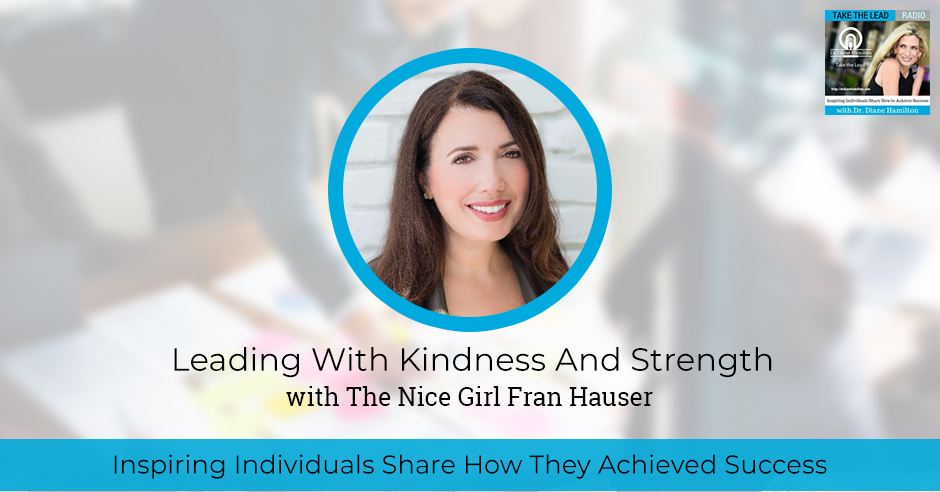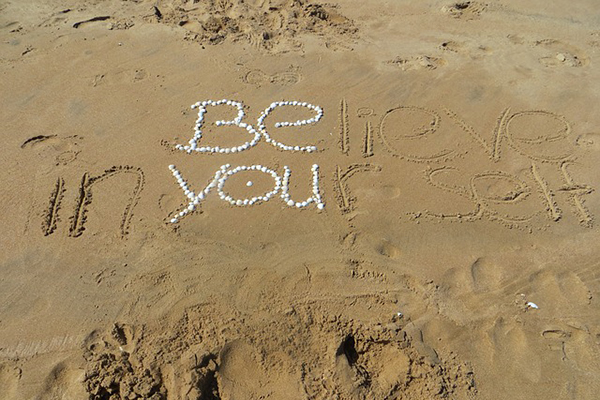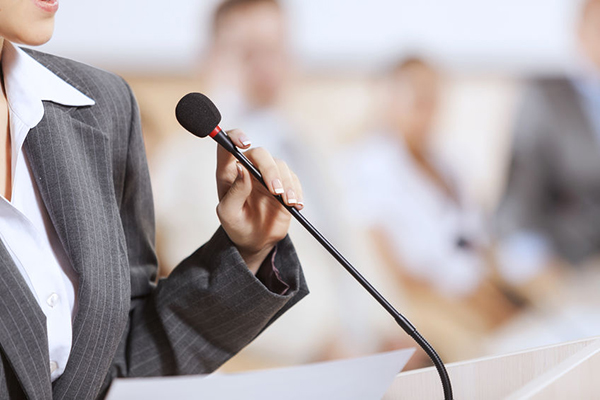In the business world, being nice is often unfortunately seen as being weak. In this episode, Fran Hauser, a long-time media executive and startup investor, shares the value of being nice and how it’s seen as a disadvantage in the business world. Fran is the bestselling author of The Myth of the Nice Girl where she deconstructs the negative perception of “niceness” that many women struggle with in the business world. In this episode, she gets into how the most effective leaders use both kindness and strength in leading. She also shares how having empathy can hold so much power and encourages the audience to create value in any way they can.

I’m glad you joined us because we have Fran Hauser here. She is a long-time media executive for PEOPLE, InStyle, Entertainment Weekly and AOL. She’s a startup investor, bestselling author of The Myth of the Nice Girl.
Listen to the podcast here
Leading With Kindness And Strength with The Nice Girl Fran Hauser
I am here with Fran Hauser who is a long-time media executive, startup investor and bestselling author of The Myth of the Nice Girl. She’s held senior positions at some of the world’s largest digital media businesses including PEOPLE, InStyle, Entertainment Weekly and AOL. Welcome, Fran.
Diane, thanks for having me.
You have been featured everywhere. I watched your Google Talk at Google. I watched a lot of your stuff. I’ve looked into so much that you’re doing because it ties into some of the stuff I researched, especially perception. Your book definitely deals with that. Before we get into the book, I want to get a background on you. I mentioned a little bit about what you’ve done, but how did you get to such a level of success? Can you give a background?
My parents moved to the United States when I was two years old. I was born in Italy. I grew up in a lovely and amazing family with lots of support, but my parents didn’t speak English. I was the translator for them at a very young age. I was telling my third grader, “When I was your age, I would come home from school. I would do my homework and I would do work for my parents.” They both had small businesses, a stonemason and a tailor. I developed a sense of responsibility at a young age. Watching the way that my parents worked and raise their family, it instilled in me values like hard work, kindness and doing the right thing.
I feel very privileged that I have the parents that I do. They formed not only my life but my career and the stuff that I work on professionally. The biggest thing that I took away from them was I watched the way that they worked and the way that they lead. They did so in a way where they were both kind and strong. That’s when I realized that those two things are not mutually exclusive, that you can lead with both qualities. It’s the way that I’ve led my entire career. It’s the way that I’ve thought about team building. It’s the approach that I’ve used when it comes to developing products or launching new processes or initiatives. Truthfully, that’s what led to the book, The Myth of the Nice Girl. It’s this whole idea that you can lead with both kindness and strength and the most effective leaders do lead with both of those qualities.
Your book is doing amazingly well. You’ve won about every award you could imagine for it and for a good reason. It’s interesting as you talked about your background, my mom’s first-generation from Palermo. It’s where her parents were from. My grandmother reminded me of that old lady in the My Big Fat Greek Wedding. I’m sure you probably liked that movie. You can relate to some of those characters probably if you have family from Italy. It’s similar.
I grew up in a community of all of these incredible people. My aunts and my uncles, cousins, first cousins, second cousins and third cousins. We would gather every single weekend in either my basement or in my aunt’s basement. There was always a lot of music. There was a lot of food. I remember my dad playing the guitar and my uncles would be singing. We would all be dancing. When I think of them, I think of My Big Fat Greek Wedding. When I got married, we had 440 people. Most of them were from my parent’s side. I can totally relate to that.
As I was watching some of your videos, my first instinct and reaction to you were, “She’s nice.” I just went to the Forbes Women’s Summit. Women sometimes at a high level come across as not so nice. They’re trying to be more like men sometimes to me when I’m around them. I was impressed by the nice quality. For me, I don’t look at nice as a negative word. It’s not trying to be a guy and I like that. I had an interesting conversation with someone who was on my show about why women and men aren’t the same when they give their speeches.
If you go see a speaking event, how men do the preacher Zig Ziglar wild thing across the stage and that can be entertaining and women can’t pull that off. I’ve never seen someone who did a good job at that as far as women go. I’m curious what you think of the difference between men and women in terms of their speaking abilities. Do you think that it’s the same playing field because he was saying that women get extra criticized right off the bat because of what they’re wearing or different things? Do you think it’s the same playing field there?
I was having a conversation with someone about this as well because this woman saw me speak. She said to me, “You have such quiet confidence about you when you’re speaking.” My response was, “I was always afraid of public speaking for many years.” I would make up excuses to not do public speaking. Growing in my career and becoming an executive, it was something that I had to learn how to do. With the book coming out, I’ve done over 80 talks over the past year. I’ve done a lot of public speaking. The thing for me is that I know myself. I’m not a big personality.
I’m not going to be the person that gets on stage and is super entertaining. I have a little bit of humor that I intersperse into my talks, but I’m not Tony Robbins. I’m not going to be like the big motivational speaker. That’s not me. For me, truly understanding and changing my mindset around speaking so that it’s more of a service. If I approach it as more of I’m sharing my thoughts, my experiences and my advice. It’s more in the framework of service as opposed to entertainment. That to me feels more comfortable. It feels more authentic. I don’t know that the whole like men versus women. It’s an individual thing. It’s being authentic, being true to who you are and not trying to take on the persona of somebody that you’re not.
I know throughout my career, not in public speaking, when I’ve tried to be somebody that I’m not, it has been work for me. This goes to a lot of what you research and talk about as well is I don’t feel comfortable. I don’t feel confident because I’m not comfortable in my own skin. I have a story in the book that I share about early on in my career when I got some bad advice to basically go over my colleague’s head, to go to her boss to get something done. I followed that advice. It got me the short-term win, but it damaged my relationship with this colleague. I realized at that moment that’s not who I am.

I’m not the person that’s going to go over my colleague’s head and it was bad advice and I had to come clean with my colleague and apologize. I took her to lunch because I had to repair that relationship. Those moments are huge learning moments and that was a big learning moment for me where I am nice. I am kind. I’m empathetic. I’m compassionate. I shouldn’t check qualities like that at the door when I go to work. If that’s who I am in my personal life, those qualities will serve me well in my professional life. That was a big a-ha for me.
You mentioned empathy and I saw you said empathy is your big Achilles heel, which I found fascinating because empathy is a big part of emotional intelligence, which I studied. I had Daniel Goleman and others on the show. We always talk about the importance of empathy, but you think you can have too much empathy. I thought that was an interesting conversation because right now, in my research in curiosity and in perception, empathy plays a big part, especially in perception. If we can understand someone from their viewpoint, we can communicate better, but how do you look at empathy and how can it be used too much?
I agree with everything you said about empathy. There’s much power in it. I know that when I’m empathetic, I can negotiate more effectively. I can get buy-ins because I’m coming from the other person’s understanding of their point of view. Empathy has been hugely helpful to me in my career, but there have been moments where I felt like I over-indexed on it. For example, I can think of a couple of experiences where I was caring so much about what other people were feeling and thinking that I was unable to make a decision. I had to make a decision.
I was like leading this team and I had to make an important decision. I was stalled, almost like paralyzed because I was so worried about how other people were feeling, thinking and how it was going to impact them. That’s where I feel like you can go too far. There are those moments and it’s about self-awareness. It’s about stopping and saying, “Wait a second.” At that moment, I’m like, “I’m the leader. I am leading this team. We need to make some product decisions. If I don’t make them quickly, we’re going to lose momentum.” It’s great to get input from people and be thankful, be grateful to them for sharing their input. At the end of the day, you have to make the decision and you have to move on. That’s an example of where you can over-index on it.
I know a lot of women and I’m guilty of this. We want to be liked. A lot of men can handle if people don’t like them. I worked with a woman. She was like, “They don’t like me, too bad,” and she was fine with it. I thought, “I don’t see that very often in women.” Do you?
No, I don’t. I had seen it more with women that were a generation before me in my professional life, the women that I was reporting into. It’s because they grew up in a generation where they had to play more like a man. There were fewer positions at the top for women. It was much more competitive. There was much more of a scarcity mindset. Some of those women, I have seen where, “I don’t care if I’m not liked. I want to get the job done. I don’t care whose toes I step on.” I have seen that. With our generation and the Millennials, I definitely don’t see that as much. What I see is more women supporting each other, women having more of an abundance mindset and women wanting to be liked. That’s the distinction that I would make. There is a generational thing there.
[bctt tweet=”You can lead with both kindness and strength. The most effective leaders actually do lead with both of those qualities.” username=””]You mentioned something about the younger generations, women still not saying much in meetings that men are asking all the questions. That part does go down to younger generations, which is interesting to me and my work with curiosity because I want to make sure that everybody is asking questions and not going along with the status quo. If you’re in a meeting and everybody agrees with everything, that’s not good.
It’s a problem. It’s still shocking to me. It’s definitely a behavior that I’ve seen in meetings at work for sure where women don’t speak up as much as men do. They don’t ask questions and they don’t share their points of view or their opinion. I’ve had to work with some women on my team. There was one woman that they knew she struggled with us. I would tell her in advance of the meeting. I would say, “We’re going to be talking about X, Y and Z. You’re the expert on this topic. I’m going to ask you to share your opinion.” The reason I would tell her ahead of time is because I knew that if she had time to prepare what she was going to say, she would feel more comfortable and more confident.
By the way, even on my book tour, I have spoken at many universities. There was one university in New York City, there were probably 120 students. Most of them were women. When it came time for Q and A at the end, not one woman raised her hand. It was all the guys that raised their hands. They came up to me after a one-on-one, the women did to ask me questions. They didn’t raise their hand when they were in that group setting. I asked the dean of the business school, “Is this normal? Does this happen?” He said, “It happens all the time.” He’s like, “It doesn’t matter who is speaking. It doesn’t matter if it’s a man, if it’s a woman, what the topic is.” The women always feel more comfortable coming up and asking a question in private.
This is something that has to change. I believe it needs to change at a much younger age. There’s definitely unconscious bias both from parents and teachers in the way that we treat boys and girls. We should be encouraging everyone to be speaking up in class. This is something that I feel passionate about because not only have I seen it in my career at work as an executive. I see it when I’m going into these colleges and doing talks. It’s surprising to me that we’re still dealing with this.
You’re making me think because I spoke at SHRM but such a high level of women are in HR. I had primarily women coming up to me afterward. It is true that I do see that quite often. I’m with you. I’m curious. When you’re talking about the woman, you gave her time and all that, I don’t know if you knew if she was an introvert or not. I know a lot of introverts like time to prepare and think. Are you more of an introvert or an extrovert?
I’m more of an introvert but I’ve learned how to be an extrovert when I need to be. If you ask people what I am, they would probably say I’m an extrovert. I am definitely an introvert so I can relate. Going back to empathy, I can have empathy for people who are introverts because I know I am that way. I like to be prepared. With the book, I’ve gotten much more comfortable with being a little bit off the cusp because I’ve done it so much. I’ve done many interviews and many talks. I feel like I’ve flexed that muscle. That’s the thing with that young woman who I talk about where I would ask her to prepare ahead of time.

I did that for a while with her, but she started feeling comfortable enough to speak up on her own. That’s a part of it. As bosses, as managers and as leaders, we have a responsibility for people that are on our teams. If we see that they’re struggling with that, doing whatever you need to do to draw it out of them because this woman is especially I knew she was so intelligent. It was such a miss for the team. I felt like we were missing out on getting her perspective and informing the products that we were building and launching. It’s something we all need to be aware of, be mindful of it.
You mentioned self-awareness previously, I was thinking as you were talking about what women say and don’t say in meetings. I worked with a company not too long ago where there was a couple of women who never stopped talking. They weren’t cognizant that no one cared about what they were saying. You see these men and women. They just shared too much and you could see the men in the room, their face and their eyes would be rolling and you don’t want to hurt their feelings. How do you get people like that to recognize that they’re not being taken seriously because they’re telling you about their grandchildren or whatever? They’re going on and on.
I do think that it’s important at the moment to jump into the conversation and to segue into whether it’s like, “I really like the comment that you made earlier. Here’s how we can build on that.” Cutting them off and if you do that a few times, hopefully, they’ll get the hint. If they’re not getting the hint, it’s important to share that feedback. It’s hard to share difficult feedback. At the end of the day, you’re doing them a favor. It’s such a gift. It is. There was this one situation that I had where I had a few people on my team that could all benefit from media training. It was like one of them talked too much. The other one had this resting bitch face, affecting her ability to get things done. The other one had something else. I thought, “Let me bring in a professional media trainer who’s objective, who can work with the team. They hear it from this expert as opposed to hearing it from me. They’re getting feedback on this expert. That’s also an approach that can be used if you think about bringing in an expert to work with your team.
You’ve talked about mentors calling you out on things. That’s an interesting thing. Do you want to share that?
I love that story too. That was a pivotal moment for me. It goes back to speaking up and being an introvert. I was working at Ernst & Young and Coca-Cola was our client. We as the Ernst & Young team spent a lot of time at the Coca-Cola offices. We would be in meetings with this older executive at Coca-Cola who was smart and experienced. I found him to be intimidating. I had such a hard time speaking when he was in the room. All I could muster to say was, “That’s interesting,” which is noncommittal, a total throwaway phrase. My mentor and boss called me out after one of these meetings. He said to me, “Fran, you have to stop that. You’re smart. You have important points of view that you need to share. You’ve got to stop with, “That’s interesting.” You have to say anything else. Just come up with any other phrase, sentence or opinion, and he was right. It was hard to hear that, but he was absolutely right.
I was probably 23, 24. What I did was I looked at the agenda for the next meeting and I picked one thing. I felt comfortable speaking about. I came up with, “Here’s what I’m going to say. I practiced it.” I went into the meeting and I said it. It wasn’t anything all that provocative truthfully, but it gave me the confidence to know that, “I could speak up.” Nobody laughed at me. I didn’t die. It was totally fine. I got more comfortable. The more that I spoke up, the more comfortable I got with it. I ended up developing this incredible relationship with that executive from Coke. He ended up hiring me away from Ernst & Young. I ended up working for him at Coke on his team. I would have continued to be invisible to him if I hadn’t spoken up. I never would have developed that relationship with him. That changed the course of my whole career.
[bctt tweet=”Women always feel more comfortable coming up and asking a question in private.” username=””]Having my mentor, Lou, at that moment to take the time to care enough about me to let me know that he thought that was something that was holding me back from bringing my full self to my work is something I’m grateful for. I had lunch with him because I hadn’t seen Lou over many years. When I wrote that story in the book, I ran it by him, which I did with everybody, every story that I had. I ran it by him. I reached out to him on LinkedIn. He was like, “This is amazing. I’d love to be in the book.” We ended up having lunch, totally like reconnecting over all of it. It’s something I appreciate. Those little moments that to him is nothing. It sounded like he’s sitting here whatever, 20, 30 years later thinking about that moment. It was a moment that made such an impact on my life. Remembering that, as a mentor, it’s incredible. Some of those smaller moments can be so powerful and impactful.
Those meetings when you’re young, that can be intimidating. The one good thing about getting old is nothing intimidates you as much. You’ve done it and whatever was intimidating about him back then, the VP, it probably wouldn’t do anything to you now. I remembered attending some board meetings where I wasn’t on the board, but I was there in a sense to help out. I had a pretty good position within the company, but I wasn’t even introduced at the table. They didn’t even say my name or who I was. I was like, “They introduced everybody around the table except for me.” There were other people at the table who weren’t on the board. They were running it or doing different things. The female factor is what it was.
I remember they were talking about something. I was an expert in what they were talking about. I finally said something and I said what my title was to introduce myself. They looked at me stunned like, “You mean you know something?” I don’t think the guy who was running the meeting was doing it to be mean or anything. It didn’t consider me as anybody important because I was a female. It’s an interesting perspective of how we can speak up. You talked about board meetings of how you had to get attention. I liked your discussion about verbal versus nonverbal and how you get attention. Do you want to talk about that?
I was a board member of this nonprofit organization. We were in a meeting. There was a man who I’m very good friends with. I have huge respect for him. He had the floor. He was not giving it up. He was talking and talking. I’m more soft-spoken. Every time that I would try to interject, I couldn’t get a word in edgewise. I decided to stand. It was incredible because what happened was when I stood, everybody, turned to look at me. It gave me the floor. I was able to start talking and share what it was that I wanted to share. For me, it was such a moment of, ” We forget how important the nonverbal stuff is.”
The idea of how much space you’re taking up and all of it. Your eye contact, smiling when it’s appropriate or whatever it is. Standing versus sitting, the whole man-spreading thing. What I learned from the research that I did was that the effectiveness of the message that you’re trying to communicate, 93% of it is based on nonverbal and 7% is based on the words you use. Being cognizant of that, the words are important, but it’s everything else. It’s the tone of your voice. It’s the variability of your voice. It’s all of that. That was a pretty interesting moment. I have to say I have used that little technique since then. It’s the idea of standing. If you feel like you’re not being seen or you’re not being heard and you have something important to say, stand.
As you talk about boards, I am interested in what you think about the law in California with having more women on boards and what advice would you give to women who want to be on boards?

I would say is that for starters, absolutely, we need to have more women on boards. We all know how important it is to have diverse boards and in terms of impact on ROI. It’s been proven as a woman, I’ve served on different boards. It’s important to dig in before you join a board and to meet other board members to understand the company’s culture and values the way that you would if you’re applying for a job. You want to make sure that there is alignment between your values and the company’s values.
My point is don’t settle because I know how hard it is to get appointed to a board, but you do have to be thoughtful. You have to be methodical. You have to take the time to understand the culture and values. A big part of that is meeting the other board members. I can’t tell you how many people don’t do that. They meet the board chair, the CEO and maybe the CFO, but they don’t take the time to meet with other board members. They attend the first meeting and they’re like, “This is awful. What am I doing here?”
Is it a company that is something that you’re passionate about? Do you clearly see how you can add value? If you have experience and expertise in marketing, but there are four other people on the board that is also marketing, just thinking about all of that. Getting on boards is all about networking. It’s all about having a relationship with the recruiters that are doing board recruiting. It’s meeting with senior-level people at companies and letting them know that I’m interested in joining a board. That’s a goal of mine for the next year.
You have to put it out into the universe. In every meeting, no matter who you’re meeting with, bring it up. This is something that I’m interested in because you never know you could be talking to somebody that it wouldn’t even occur to you that they would have access to that, but they might. I would say with anything, putting it out into the universe and being intentional about it. Having meetings, bringing it up, but then when the opportunity does present itself, be thoughtful and careful about, “Is this the right board for me to join?”
I know a lot of people who are like me behavioral experts. They’ve talked to me about the board thing thinking that they’re looking for financial experts, EBITDA people and that type of thing. Do they look for people other than marketing experts? What type of expertise are they looking for other than the financial?
When you’re putting together a board, whether it’s a nonprofit board or corporate board, you’re looking for people that have different expertise. You’re looking for people who have the financial, the EBITDA, the financial expertise that can be on an audit committee. They’re looking for people who have marketing and product development. They’re looking for people who have talent management and chief people officer, HR or behavioral. The best board is diverse, not just from a gender perspective and other demographic perspective but also from the expertise. I’m on the board of global giving. It’s a nonprofit organization. We spend a lot of time thinking about the people that we have on the board.
[bctt tweet=”Niceness is often equated with weakness at work when, in fact, it’s really being respectful of different leadership and work styles.” username=””]We want to make sure that we have a customer who uses the platform a lot, who we saw was making a lot of donations through the platform. We developed a relationship with him. He’s a partner at a law firm. He’s on the board. He’s representing the person who uses the global giving platform. We have project leaders who put their projects on the platform to raise money. We have a project leader from Africa who is on the board. Just thinking about, “How can we have a diverse perspective as possible?”
As I was reading, the different things that you’ve written about in some of the other issues we’ve talked about now, I started to think about some of the other issues about women not on boards or in general. I know a lot of women. You talked about this in one of your talks who say sorry a lot and a lot of people say sorry a lot. After I watched one of your talks, I searched my email to see if I did that because you said, how many times did you ever say sorry? It was a lot. I looked and I thought, “I don’t think I said sorry very much.” I think maybe I need to say sorry. Is there a balance to how much women should? I’m like this mean thing who doesn’t say sorry. I saw a lot of sorry, but they were at another end of the conversation to me, but not from me.
Honestly, that’s the first time that I’ve heard that.
I was thinking it was making me mean or something.
For me, when I went back and I did that little exercise of searching my inbox and all of those emails came back, what I realized was, I was apologizing for things that were trivial. By doing that I was putting myself in a position of weakness. It’s important and appropriate to apologize if you’ve done something to hurt someone. You should apologize but apologizing because it took you more than four hours to respond to an email, it’s taken me so long or apologizing because you can’t make an event that unsolicited. There’s no reason to apologize for those things. That’s what I found years ago when I did that exercise was I’m apologizing for things that I shouldn’t be apologizing for. There’s no reason to apologize for. I started replacing I’m sorry with thank you, which is a great way to do it. It’s like, “Thank you for the invitation. I’m unable to attend,” instead of, “I’m sorry. I can’t make it. It is taking me longer than usual to get back to somebody. Thank you for your patience. It’s a tweak that’s worked well for me.
It’s a good tweak. What’s interesting is I’m different in person than I am on email. I do so much communication through email or in the online classes I teach, where everything is virtual that I tend to get right to the point. It sounds cranky because I’ve left out the nice I’m sorry for whatever thing. I have to go back after I write whatever I say and put something nice at the beginning because I forgot to do that.

I feel I’m rereading my email much more than I used to.
Do you think men do that though?
I don’t know. Maybe some do, maybe the nice ones do, but for me, it’s the same thing. It’s like sometimes I’m in a rush. I like to type it out. I’m like, “That sounds cold.” I need to warm it up a little bit. I definitely do that too. I’m also looking for, “Did I say I’m sorry and I shouldn’t have or did I use the word ‘just,’ which is like, it always did such a pet peeve of mine. You don’t need to say, “I’m just checking in,” or “I’m just following up.” It’s this weird qualifier word. You need to do that. I look for those things. I look for speech weak nerves and sometimes I’m in a hurry and I don’t. Sometimes I get the email out and I reread it later. I’m like, “It wasn’t great.” It’s life. We do the best we can.
There’s no tone in email, which is tough. We teach netiquette, tone and things like that in online classes. It takes up so much time. For me, I’m always working twelve-hour days and it comes across as direct and sometimes I’ll warn people about that. Don’t take this the wrong way. If it comes across that way, I’m in a hurry usually.
That’s an important point, especially with your team. If you set that as a norm, if you say to your team, “We’re all running a million miles a minute.” I know how busy we all are. It is totally fine to be short and direct in your email. You don’t need to use the exclamation points. You don’t need to use Emoji. You set that with your team. It’s a wonderful thing. It’s important and efficient.
I worked with people who will send you paragraph after paragraph of the email. You know that the same email is going to seven other people because they’re bored or whatever it is. I didn’t want to be that person. Even those people, male and female don’t seem to get it. If you respond back with a short answer, “This is all the time I have,” one or two sentences, that’s a tough one to get that through because people get their feelings hurt easily. I know women often tell me that they hate it when they cry at work. Women seem to do this more than men, at least in my experience. What do you say to women about that? It’s a challenge for a lot of women. They hate it when they do it and yet they can’t keep from doing it.
[bctt tweet=”Think about how you can create value for the company. Once you do that and have a track record, you’re going to be the go-to person.” username=””]It happens to the best of us. It’s the whole getting emotional at work, whether it’s crying, screaming or fighting. However it comes out, it usually is not all that productive. The best advice that I could give to people is to take a minute and take a breath. I was saying this to seven-year-old and nine-year-old, two boys. With my nine-year-old, I hit him because he’s like all over his little brother, all the time. I said to him like, “Walk away.” If you feel like you’re getting angry, if you feel like you’re going to do something that’s going to be annoying to your brother, stop and remind yourself that you need a minute. Go upstairs into your bedroom, go downstairs to the basement and walk away.
It’s similar advice at work. It’s totally fine to say like, “I need to reflect on this and let’s pick up this conversation later or tomorrow.” Getting a good night sleep and revisiting the conversation in the morning is the best thing that you could do. It’s whatever those triggers are for you, knowing what those triggers are that set you off emotionally and being able to recognize them. Also being able to recognize, “Does your throat get dry? Is that your stomach starts like turning?” As soon as you start feeling that, knowing that, “I need to walk away.”
Recognizing triggers is important. I know for me my triggers would be with somebody who I saw is not too bright. They got somewhere as Peter principle thing. They’ve been promoted but they weren’t very good at it. If they would somehow imply that I was incompetent when I knew something, they didn’t even know enough. I get so frustrated because they had no idea what they were even talking about. That would be my trigger. What’s your trigger?
My trigger is any kind of bullying and that can take so many different forms, but that’s something that bothers me. I’ve always thought of myself as an underdog. It’s because of my immigrant background. When I see somebody who’s an underdog and for any reason or in any way. I see them being taken advantage of or I see somebody being mean to them that sets me off. Also, not respecting my expertise, I can totally relate to that.
If they can’t recognize it because of their lack of it. If you bring it up, you look like a jerk. There’s no winning on that one. I like the whole overall discussion of the negative of niceness and everything that you deal with in your book. I wanted to talk about perception because we’ve been talking about it a lot. In general, it’s interesting to look at how men perceive women and how women perceive men. We don’t recognize that our perceptions are involved sometimes especially globally. It’s not how I perceive you and how you perceive me, it’s how I perceive your perception of me. It’s double going on here. What do you think is the biggest takeaway from your book about understanding the perception of niceness?
The biggest takeaway is to not jump to the conclusion that someone is weak because they’re not. Niceness is often equated with weakness at work. There’s this thought that you’re not going to accelerate in your career. You’re not going to get to the corner office, whatever the corner office may mean to you if you’re too nice. For all of us, it’s being respectful of different leadership styles and different work styles. If you see that somebody is nice there, they’re a person who’s empathetic. They’re collaborative. They have the confidence that there are enough opportunities to go around. You can also think about there’s all that great stuff, but there’s also maybe another side to that.

Maybe they’re still demanding and maybe they still have high expectations. It’s not like I would love for us to move away from labeling and putting people in boxes. Understanding that people are very multidimensional and not jumping to these conclusions because I’m nice and I’m likable. I’m also ambitious. I do have high expectations of people. It’s being open. It’s being curious, having a more open mindset about people and about who they are, the way that they work and the impact that they have on the world.
You were able to overcome people’s perceptions of you being nice if there was a negative perception of it. The success you had is staggering. Your role for building People.com is one of the biggest media brands online and your work with Time Inc., AOL and Moviefone, those are serious. You’ve held the president and GM positions at these companies. Why do you think that it didn’t hold you back and it might’ve held other people back?
For me, a big part of it is that I am an effective operator. I’m good at making things happen and delivering because I was able to do that. I led the team that built People.com into one of the most profitable businesses at Time Inc. Out of 200 businesses, it was in the top ten. People saw me as somebody who, “She can get crap done.” I say this to young women and men that I mentor all the time. It’s important to create value wherever you’re working. If you’re working for a small business, if you’re working for an early-stage company, if you’re working for a nonprofit, if you’re working for a big Fortune 500 company to think about how can you create value for the company. Once you do that, once you have a track record, it’s everything. It’s like you’re going to be the go-to person. I had that success with People.com. I was given InStyle, Entertainment Weekly, Essence and People en Español and even more breaks. I was overseeing a portfolio of twenty brands by the time I left the company. It’s doing good work.
The first one has to be the hardest. It’s what you get labeled as somebody who’s good at doing things. They want to make you a good executive secretary.
Here’s the thing, when I think about People.com, one of the biggest reasons that I felt I could be successful in that role was because I needed a lot of different departments support. I needed technology. I needed marketing. I needed all of these different departments to support me and my team as we were building this product and this business. Because I was nice, because people trusted me, I had these great relationships with the department heads. They stepped up and they gave me the resources that I needed whether it was human resources, financial resources, their time and energy or whatever it was. That was all helpful in building that business. I feel being nice and like my personality, it helped me with that first win. It was combined with this operating rigor. I had a vision. We knew exactly what we wanted to accomplish. We had a plan. We had timelines. We had deliverables. We had high expectations. Having that operating rigor is also important. That’s not something that I talked about in the book so much because the book is more about mindset, personality and leadership styles. The other part of it is like you have to do great work.
I’ve seen some women who will say, “It’s because I’m a woman.” I’m thinking, “No. You just don’t do good work.” Just because you’re a female doesn’t mean you get to rest on that alone.
Here’s the other thing that’s been tricky about social media because it’s so easy for people to self-promote. It’s a wonderful thing in some ways. Take credit where credit’s due, it’s great. I had this conversation with a younger woman who on the Forbes 30 Under 30 list. She has this huge social media following, but when I tell you she has not accomplished anything, nothing. You’ve done a great job of promoting yourself. That’s awesome. At some point, you’re going to need to do something. You’re going to need to create value for the world in some way. You’re going to need to put something out into the world that you become known for.
She’s setting a platform for later. It’s hard to know if some of these will turn into something. I find it so fascinating how you can be famous for being famous. It’s a different time. You’re definitely famous for doing something. If I spent another hour, I couldn’t list all the awards you’ve won. It was such an honor to have you on the show. A lot of people could get a lot of value out of reading your book, having you speak and all the stuff you do. If people wanted to contact you, how would they do that?
The best way is my website, which is FranHauser.com. I’m on Instagram and Twitter @Fran_Hauser.
I sent your website to someone who’s creating a website. I said, “This is a great one.” She wanted examples. It’s really well done.
You can also sign up for my newsletter on the website. That’s another way to stay connected.
It’s definitely a great website. You have so much good information. It was so fun having you on the show. Thank you so much, Fran.

Thank you, Diane. Thanks so much for having me.
You are welcome.
—
I’d like to thank Fran for being my guest. We get so many great guests on this show. If you’ve missed any of our past shows, you can go to DrDianeHamiltonRadio.com. If you’re looking for more information about Cracking The Curiosity Code, the book or the Curiosity Code in general, we have the Curiosity Code Index that you can take and certification to become certified to give the Curiosity Code Index and that’s all at CuriosityCode.com. When you go through the training, for those of you who are in HR or leadership professionals, you can get five hours of SHRM recertification credit, which is huge and wonderful. It was great speaking at SHRM. If you missed my talk at SHRM, there’s some information on my YouTube station. I hope you check out the YouTube station because every once in a while, some of our shows, we have the video versions or even sometimes audio versions on this site. Please go to YouTube.com/DrDianeHamilton to check out that.
We have so many interesting guests. If you have a chance, please check out their sites because they all are linked on the radio page. Many of them have great free information that they share. I know a lot of people could get a lot of great insight from that. I had looked at Fran’s site, she has such a great website. It gave me a lot of ideas for my friends who were asking me, “What’s a good way to set up a website for speaker or consultant?” Her site was clean and good. I hope you have a chance to check it out. I enjoyed having Fran on the show and I enjoyed this episode completely. I hope all of you will join us for the next episode of Take The Lead Radio.
Important Links:
- The Myth of the Nice Girl
- Forbes Women’s Summit
- Daniel Goleman – Previous episode
- People.com
- FranHauser.com
- Instagram – Fran Hauser
- Twitter @Fran_Hauser
- CuriosityCode.com
- YouTube.com/DrDianeHamilton
About Fran Hauser
 Fran Hauser is a long-time media executive, startup investor and best-selling author of The Myth of the Nice Girl. She’s held senior positions at some of the world’s largest digital media businesses, including PEOPLE, InStyle, Entertainment Weekly and AOL. Now a startup investor who largely invests in female founders, Fran was named one of Business Insider’s “30 Women In Venture Capital to Watch in 2018.” Fran and The Myth of the Nice Girl have been featured on a wide range of outlets including NBC’s Today Show, CNBC, PEOPLE, Fortune, TIME, Fast Company, Oprah.com, Business Insider, Elle, and many more. She is a frequent speaker on women’s leadership and writes a regular career advice column for Refinery29.
Fran Hauser is a long-time media executive, startup investor and best-selling author of The Myth of the Nice Girl. She’s held senior positions at some of the world’s largest digital media businesses, including PEOPLE, InStyle, Entertainment Weekly and AOL. Now a startup investor who largely invests in female founders, Fran was named one of Business Insider’s “30 Women In Venture Capital to Watch in 2018.” Fran and The Myth of the Nice Girl have been featured on a wide range of outlets including NBC’s Today Show, CNBC, PEOPLE, Fortune, TIME, Fast Company, Oprah.com, Business Insider, Elle, and many more. She is a frequent speaker on women’s leadership and writes a regular career advice column for Refinery29.
Love the show? Subscribe, rate, review, and share!
- DrDianeHamilton.com
- Dr. Diane Hamilton Facebook
- Dr. Diane Hamilton Twitter
- Dr. Diane Hamilton LinkedIn
- Dr. Diane Hamilton YouTube
- Dr. Diane Hamilton Instagram